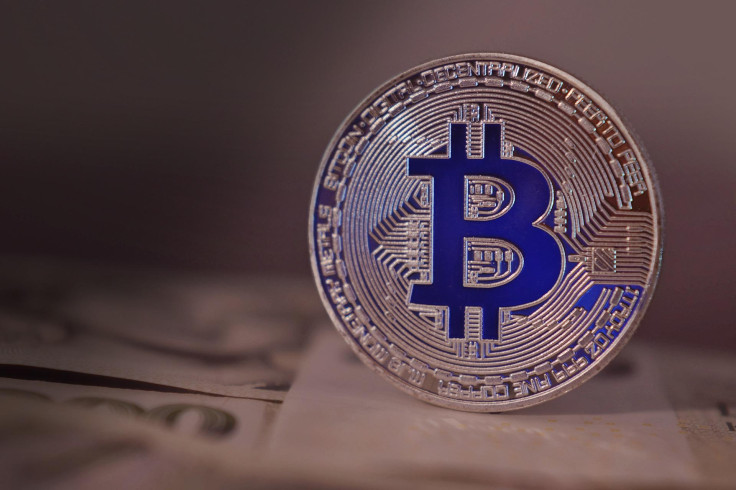Bitcoin Primed To Become The New 'Sound' Money
Recently, Prince Philip Karageorgevitch, the hereditary Prince of Serbia and Yugoslavia, stressed that BTC is the only cryptocurrency exhibiting the potential to "fix" money. From his perspective, money is inherently corrupted, and attempts by altcoins to emulate Bitcoin are just another example of this desire to "create" money from nothing.
While some may disagree with this viewpoint, labeling his opinion another dose of "hopium" aimed at bumping BTC prices higher, Bitcoin is rapidly embracing all the qualities needed to become "sound" money. Per Thomas Jordan of the Swiss National Bank, "Money is sound when its value is stable and it is thus able to perform its functions as a medium of exchange, a unit of account and a store of value. Sound money creates security and trust, which in turn promotes social harmony and cohesion."
While premature to call Bitcoin "stable" or a "store of value," it already ticks all the other sound money boxes needed to become a trusted form of money. Best of all, as a scarce and deflationary concept, it can't be inflated away by central banks like ordinary money. While this alone should sway BTC skeptics, especially given the high inflationary backdrop and its social implications that are currently haunting global policymakers, other contributing factors are making this sound money transition possible.
The Data Doesn't Lie, Faith in Bitcoin Is Climbing
Although it may be known better for its price volatility, Bitcoin adoption continues to achieve new milestones in terms of its adoption. A survey carried out by Forrester Consulting on behalf of AAX underlines the adoption momentum, highlighting that BTC adoption and awareness across emerging markets in Africa, Latin America, Southeast Asia and the Middle East has grown considerably since 2021's all-time high.
Interestingly, users from Southeast Asia and the Middle East are embracing BTC as a means of money management, using it as a source of savings for the future and using it as a hedge against potential losses in other investments. By comparison, most users across Africa and Latin America use BTC as the primary mode of sending and receiving payments.
This shifting reality is also evident from small wallet accumulation. Figures from on-chain data aggregator Glassnode reiterate this, "BTC accumulation by shrimp accounts (wallets that hold less than 1 BTC) has increased substantially in the last few months. Initially triggered by the Terra implosion, the accumulation now equates to roughly 156,000 BTC."
The Chainalysis Global Crypto Adoption Index report noted that the global adoption of Bitcoin skyrocketed by nearly 880% in one year between July 2020 and June 2021. As a result of this increased adoption, a wave of merchant stores and outlets are accepting Bitcoin as payment, further expanding the legacy token's usefulness as a medium of exchange. One of the keys to unlocking the full potential of Bitcoin as a payment channel is embedded in its design: fractionalization.
A Perfectly Miniaturized Unit Of Account
Bitcoin detractors enjoy poking fun at the inaccessibility of Bitcoin by noting the high price of one coin. Yet, this ignores the fact that Bitcoin already has an embedded unit of account measurement that outstrips fiat's corresponding capabilities. The inability to fractionalize modern-day currencies for realistic everyday use beyond two decimal points is something that bitcoin handily overcomes with its Satoshi Standard.
One Satoshi – the smallest unit of Bitcoin – accounts for 1/1,000,000 of Bitcoin, making it highly accessible, even at today's BTC value. This factor alone is enough to encourage more widespread Bitcoin daily use, and platforms including AAX, OKCoin, Bitfinex and Coinmarketcap already embracing the Satoshi (SATS) Standard underline this point.
Using SATS to break BTC down into the smallest-possible units is consequently driving the expansion of using BTC for micropayments. As such, many stores, outlets and brands have started accepting BTC payments, adding momentum to mainstream adoption.
Now that Bitcoin's underlying utility is also increasing with the incorporation of smart contracts, sidechains and L2 payment networks, the improving functionality of the legacy network's infrastructure will also contribute to greater user value for users and adoption in-kind.
It's Time for Bitcoin to Realize the Moniker of 'Digital Gold'
Cumulatively, characteristics like rising adoption, increased payment usage and heightened accessibility have handed Bitcoin renewed opportunities to achieve the role of sound money. Sure, labeling Bitcoin a store of value is still hard to argue given its price volatility, but when evaluating it against the backdrop of rampant money printing and the sky-high inflation currently circling the globe, the case for a stronger, apolitical money alternative is rising.
Bitcoin nation-level adoption across the globe with particular emphasis in emerging markets, and massive adoption at an individual level across countries suffering from high inflation and hyperinflation, will be key catalysts. However, as developing economies face similar challenges, Bitcoin can deliver the alternative to the desire to create money from nothing.
Besides, the Bitcoin network has been gradually foraying into the DeFi space. This is helping BTC change its narrative from a "store of value" to a "yield-bearing asset." On top of that, the limited availability of BTC is also helping position the token as a strong hedge against inflation. Per reports, bitcoin has been consistently moving in the opposite direction of the USD since the start of 2022. Historical data shows that whenever the dollar goes down, cryptocurrencies tend to rally. And with BTC being the largest crypto by market capitalization, there is a high chance that the next drop in the dollar will trigger its value higher.
Bitcoin is scarce, and so is gold or any other precious metal. In this context, it is critical to understand that both precious materials and Bitcoin lack any intrinsic value but are evaluated based on their scarcity, which further makes a strong case for BTC to replace gold and other metals as markets continue becoming digitalized.
(Reuben Jackson is a blockchain security consultant and crypto writer.)

© Copyright IBTimes 2024. All rights reserved.





















